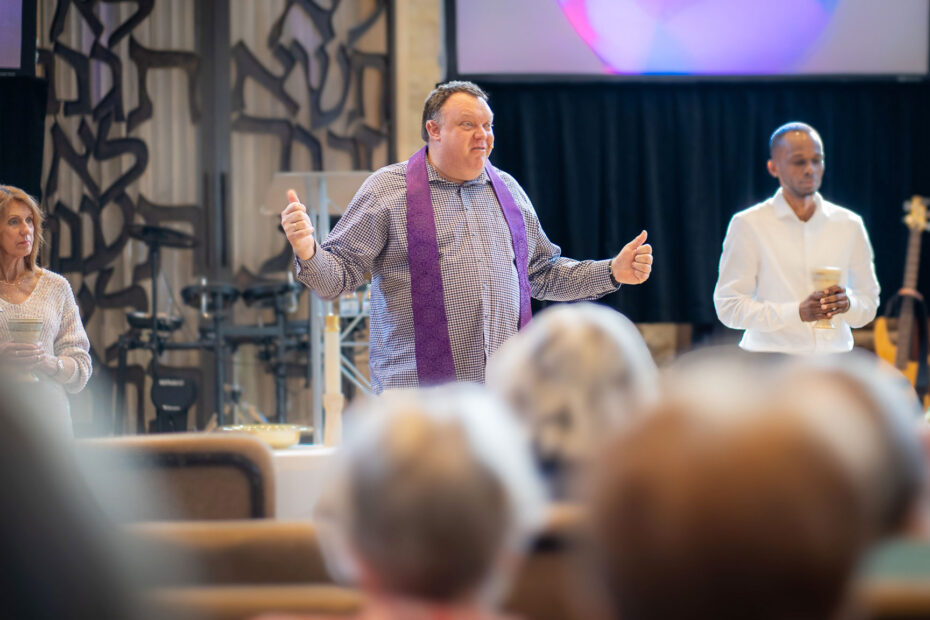Have you ever looked at something—maybe a building, a relationship, or even your own life—that seemed solid on the outside but was quietly falling apart on the inside?
There’s an old story about a massive dam that held back a river, providing power and water to an entire city. From the outside, it looked indestructible. But deep within, cracks were forming. At first, they were invisible—small weaknesses no one could see. But as pressure built, those cracks deepened until, one day, the dam burst. The result? Chaos.
I can’t help but think about how much that story resembles our spiritual and emotional lives. On the outside, we might appear strong—active in our faith, showing up to church, volunteering, giving generously. But beneath the surface, hidden cracks begin to form. Unresolved pain. Ignored fears. Suppressed emotions. And if we don’t address them, the pressure builds, and we break.
The Cost of Avoiding Our Inner Struggles
King Saul is a tragic example of this. He was chosen by God, anointed to lead, and started off strong. But he had emotional wounds—insecurities, jealousy, fear—that he never dealt with. Instead of bringing his struggles to God, he let them fester, and they eventually consumed him. He became erratic, angry, and paranoid. He lashed out, even trying to kill David. And in the end, he lost everything.
On the other hand, David wasn’t perfect. He made huge mistakes. But what made him different from Saul was his willingness to bring everything—his joys, his fears, his failures—before God. In Psalm 139, David prayed, “Search me, God, and know my heart; test me and know my anxious thoughts. See if there is any offensive way in me, and lead me in the way everlasting.”
David understood that true spiritual health isn’t just about outward obedience—it’s about inner transformation.
My Own Wake-Up Call
I used to think that as long as I was doing enough for God, I was good. I was all in—leading, serving, ministering to others. But deep down, I had cracks I wasn’t willing to face. I thought if I ignored my struggles long enough, they’d go away. But they didn’t.
Instead, they seeped into my life in ways I didn’t expect. One moment, I could be encouraging and uplifting. The next, I’d snap in frustration. There were relationships that suffered. Moments I regret. I reached a breaking point where I couldn’t keep pretending. I needed real transformation—not just behavior changes, but healing from the inside out.
Maybe you’ve been there too. Maybe you’re there right now.
What If We Faced Our Inner World?
Too often, we treat faith like a performance. We push through. We stay busy. We convince ourselves that if we just do more, we’ll feel closer to God. But that’s not what Jesus modeled for us.
Jesus wept openly. He expressed righteous anger. He withdrew to be alone in prayer. And in his darkest hour, he was honest with God: “Father, if you are willing, take this cup from me; yet not my will, but yours be done.” (Luke 22:42)
Jesus doesn’t ask us to suppress our emotions—he invites us to bring them to the Father. To be honest. To surrender.
A Challenge for This Season
As we walk through Lent, I want to invite you to take an honest look at your heart.
- Be still before God. Take even two minutes of silence a day to allow God to search your heart.
- Name your emotions in prayer. Don’t just pray vague, surface-level prayers. Be real. If you’re feeling anxious, say it. If you’re feeling angry, say it. God can handle it.
- Find a trusted community. You’re not meant to do this alone. Find a small group, a mentor, a friend—someone who can walk with you.
- Reflect on Scripture in a personal way. Read passages like Psalm 139 or Psalm 42, where the psalmist wrestles with his emotions before God.
Because here’s the truth: If we ignore the cracks, they don’t go away. They only get bigger. But when we bring our whole selves—our joys, our struggles, our fears—to God, he can restore and transform us.
So, will we allow God to do that work in us? Or will we keep ignoring the cracks until they break us?
The choice is ours.

